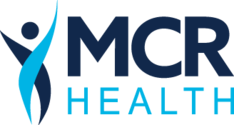
Valentine’s Day has passed, and stores
are clearing their shelves of heart-shaped treats. But now is a good time to
turn the focus on our own hearts. February is American Heart Month, and MCR
Health encourages you to make your heart health a priority.
About American Heart Month
American Heart Month (AHM) was started by the president in 1964, and since then, every February has been called American Heart Month.
According to the American Heart Association, about 90 percent of people who have cardiac arrests outside of a hospital die. If you are asked to do CPR in an emergency, you will probably be trying to save the life of a spouse, parent, or friend you care about. For this year’s AHM, the American Heart Association wants people to know how important it is to know Hands-Only CPR. The theme, “Be the Beat,” urges people to be the beat it takes to keep someone alive by learning the two simple steps it takes to save a life:
-
- Step 1: If a teen or adult in your home suddenly collapses, call 911 immediately.
-
- Step 2: Place one hand on top of the other as shown in the video and push hard and fast on the victim’s chest.
Who is at Risk?
Heart disease is the leading cause of death in the United States, taking the lives of more than 650,000 people each year. During American Heart Month, we spread the word about the dangers of heart disease, remember those we’ve lost, and talk about what we can all do to save the lives of many of our loved ones and reduce the unfair burden of heart disease in high-risk areas.
In recent years, research and innovation have helped us learn a lot more about heart disease and find better ways to treat it. We can now diagnose, prevent, and treat heart disease more quickly and effectively than ever before thanks to advances in technology. We also have a better understanding of risk factors for heart disease such as high blood pressure, high cholesterol, smoking, being overweight or obese, and type 2 diabetes.
Despite the significant progress we have made, heart disease still takes a heartbreaking toll, a burden that is disproportionately carried by Black and brown Americans, American Indians and Alaska Natives, and people who live in rural areas. Pregnancy-related deaths, which are more common in women of color, are also primarily caused by cardiovascular diseases, including heart conditions and strokes. Addressing these tragic disparities and improving heart health has never been more important, as people with heart disease and related conditions are also at increased risk of severe illness and long-term effects from COVID-19.
How to Reduce Your Risk of Heart Disease
Know your cholesterol & blood pressure levels – and control them
High blood pressure and high cholesterol frequently have no symptoms, making a routine check by a health care provider even more important. If high levels are detected, people can lower their blood pressure and cholesterol by eating a low-sodium diet, being physically active, maintaining a healthy weight, and taking prescribed medications. It’s important to work with your primary care provider to make a plan for keeping healthy levels.
Choose healthy foods & drinks
Heart disease risk can be lowered by eating more fruits and vegetables, whole grains, and healthy sources of protein, and by eating less saturated and trans fat, added sugars, and sodium. You can also lower your risk by drinking less alcohol and sugary drinks. Men shouldn’t have more than two alcoholic drinks a day, and women shouldn’t have more than one alcoholic drink a day.
Get regular exercise
Even just 30 minutes a day of physical activity can be very beneficial to your health. Exercise helps people manage their weight and lowers their risk of developing heart-related illnesses like high blood pressure or obesity. Simple tasks like walking the dog, using the stairs, doing the dishes, or practicing yoga at home can all help you get moving and lower your risk of developing heart disease.
Manage diabetes
A healthy diet, maintaining a healthy weight, exercising regularly, and controlling your stress levels and blood pressure are all lifestyle modifications that can help you manage your diabetes and lower your risk of heart disease. To further help prevent health issues and help you live a longer, happier life, working with a specialist to manage your diabetes can be beneficial.
Quit smoking
According to the Surgeon General, quitting smoking is the single most important step a smoker can take to improve the length and quality of his or her life. As soon as you stop smoking, your body starts to fix the damage it did while you were smoking.
Manage Stress Levels
It may seem like stress only has an effect on a person’s mind. But it can hurt your heart as well. Managing your stress levels is an important step in lowering your risk of heart disease. Meditation, writing in a journal, listening to music, and going outside are all good ways to deal with stress and improve your mental and physical health.
Know Your Family Heart Health History
Risk factors for heart disease can also be passed down from parent to child, so knowing your family’s history of heart health can help you figure out how healthy your heart is and how likely you are to have heart problems now or in the future. By knowing your family’s medical history, you can also help your doctor figure out where you may be at a higher risk for conditions like heart disease and make changes to your life to lower those risks.
How to Observe American Heart Month
Staying active, eating well, and watching our weight are all important parts of keeping a healthy cardiovascular system. Choose a new heart-healthy habit like jogging or drinking water instead of soda and try to keep it up for a month. You can also protect your heart by drinking less alcohol and giving up cigarettes.
2. Educate yourself
Find out what makes you more likely to get heart disease, what you can do to avoid having a heart attack, and how your choices can help you stay healthy. Also, learning CPR can help you “Be the Beat” and save the life of someone you love or someone else who may be having a heart attack.
3. Get your cholesterol tested
If you think you might be at risk for heart disease, ask your doctor to do a simple cholesterol test to tell you if you are at risk and should make changes to your diet.
5 INTERESTING FACTS ABOUT HEART HEALTH
1. Heart attacks can be silent
One out of every five heart attacks happens without the person even knowing they had one.
2. Heart attacks are different for women.
Women and men may have different symptoms. Some of these are pain in the back, arm, neck, or shoulder, nausea, fatigue, shortness of breath, and vomiting.
3. Young women are at higher risk than men
Women under 50 are twice as likely as men in the same age group to die from a heart attack.
4. Another reason to hate Mondays
Heart attacks are more likely to happen on Monday mornings than on other days of the week. Scientists think this is because our circadian rhythm gets thrown off over the weekend, which causes our blood pressure to rise and makes other changes to our nervous system.
5. Diet soda raises heart attack risk
If you drink one or more diet sodas a day, your chances of having a heart attack are 43% higher than if you drink regular soda or none at all.
Why American Heart Month is Important
American Heart Month encourages us to look at our own health habits and risks and take steps to improve our heart health.
2. It promotes education about heart health
Knowing the risk factors for heart disease and how to reduce them can help people live healthier lives and lower their risk of heart attacks or other cardiovascular diseases.
3. It raises awareness of heart disease
Heart disease is the leading cause of death in the United States. It is a slow-moving epidemic that affects almost everyone.
How Can MCR Help?
MCR Health is here to help you keep your heart in top shape! We understand how difficult it can be to make time for exercise, plan a healthy diet, and maintain a healthy weight. We can assist you in developing a plan for optimal heart health, as well as scheduling regular checkups every year or every few years, depending on your age and current physical health. Allow MCR to “Be the Beat” for you. Do not hesitate to contact us to schedule an appointment with one of our cardiologists so that your heart can receive the care it requires!

